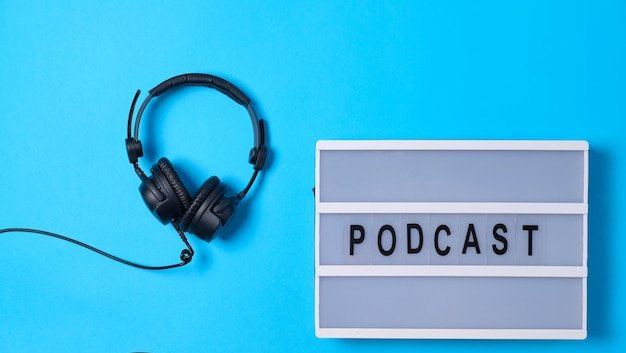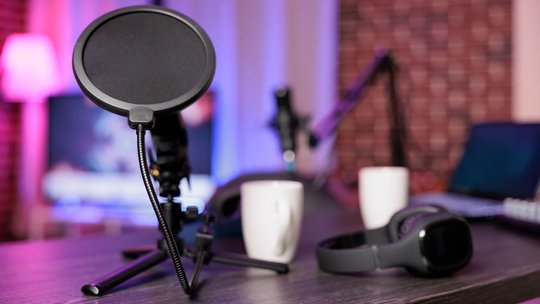Blog
How To Plan Your Podcast Episode Successfully (Ultimate Guide)

Published 4/9/2024 by Babalola Alabi
PodcastingEveryone seems to be a podcaster these days. But the fact remains that joining the podcast train doesn’t guarantee you being successful in it, especially if you’re doing it the wrong way.
Listeners have numerous podcasts they can choose from and to be on their list, you have to get your podcast structure and format right. In this article, we’ll discuss how to plan and prepare for a successful podcast episode and what you should consider.
10 Things to do to Plan a Successful Podcast Episode
- Research your topic and choose an angle of discussion
- Create a podcast outline
- Research your guest
- Plan your conversation structure
- Create a list of interview questions
- Finalise decisions on duration for each segment of the podcast
- Share information your guest needs to know before the podcast episode
- Practice important parts of the podcast episode
- Test recording tools, software and equipment.
- Record your podcast episode
1. Research your topic and choose an angle of discussion
First and foremost, research the topic. It’s not just about deciding the topic but having a deep insight into the topic. Several podcasts in your niche might have discussed the same topic and you doing that might just be a copy-and-paste version of theirs. Here’s what you should do:
- Decide on the topic and research it.
- Listen to your competitor podcasts to pick useful information, create podcast outlines, and leverage their weaknesses for your podcast strength.
- Choose a unique angle of discussion.
2. Create a podcast outline
A podcast outline provides an overview of the content and structure of a podcast episode. It is the guide you follow during the recording process. A typical outline contains:
- Introduction (title of episode and brief overview).
- Opening segment (set the tone of the podcast, greet guest(s) and probably share relevant information).
- Main content (start the topic, interview the guest).
- Intermittent ads
- Audience’s question and answer
- Closing segment and outro.
Your podcast outline helps you stay on track and ensures that you don’t miss vital points and information when recording.
3. Research your guest
Whoever you’re bringing onto your podcast should be someone you know well. That doesn’t necessarily mean you have a super close relationship with the person. Check who the person is, their expertise, relevance to your audience, previous media appearance, public persona (additional context and insights into their personality and interests), online reviews, interview style, availability and schedule, mutual connections, potential talking points and finally, legal and ethical considerations.
4. Plan your conversation structure
Planning your conversation structure involves organizing the flow of your conversation strategically. And the main purpose of doing that is to keep your audience interested and ensure that your episode delivers value. To achieve this, you need to establish a clear objective for your podcast episode. What message do you hope to pass to your audience at the end of the episode? What do you want your podcast layout to look like? Create a guiding framework to help structure the conversation and help you stay focused.
5. Create a list of interview questions
If you’re having a guest on the podcast, interview questions are one of the ways in which you can engage the guest and the audience effectively. These questions can also help the host to explore the topic deeper and extract some valuable insights from the guest. However, it's important to strike a balance between open-ended inquiries and more specific queries.
6. Finalise decisions on duration for each segment of the podcast
How long should each section of your episode be, including the introduction, main content segments, and conclusion? One key consideration when deciding on segment durations is to maintain the overall flow and pacing of the episode. You want to ensure that each segment is long enough to cover the intended content effectively but not so long that it loses the audience's interest or drags on unnecessarily. Balance the duration for each segment to manage the overall length of your podcast episode effectively.
7. Share information your guest needs to know before the podcast episode
Before recording a podcast episode, ensure that your guest is well-informed and prepared for the upcoming conversation. Certain information like the topic, angle of discussion, and probably topics that will require deep research of the guest should be communicated beforehand. It helps boost the confidence of the guest, minimize confusion and ensure clear communication.
8. Practice important parts of the podcast episode
Sometimes, you might feel the need to practice before recording probably because you’re worried you could fumble while speaking. It could be your introduction, transitions, outro or some other parts of the main content. Practicing these parts enhances the overall flow and quality of your episode.
9. Test recording tools, software and equipment
Before recording, ensure that all the tools, software, and equipment are in proper working order and set up correctly. Check your microphones, headphones, recording software and device, audio interfaces and equalizer. Other details you can focus on are microphone placement, acoustic treatments and soundproofing.
10. Record your podcast episode
After making every preparation needed and ticking all the boxes, you can go ahead to record your podcast episode. Start by introducing your podcast. Provide some context for the episode. Follow your prepared outline or script to ensure that you cover all the key points you want to address. Don't be afraid to allow for natural conversation flow. Be authentic in your conversations. Pay attention to your pacing, tone, and delivery and speak clearly and confidently.
FAQs on Planning a Podcast Episode
How do I start planning a podcast?
To start a podcast, do the following:
- Research your topic and choose an angle of discussion
- Create a podcast outline
- Research your guest
- Plan your conversation structure
- Create a list of interview questions
- Finalise decisions on duration for each segment of the podcast
- Share information your guest needs to know before the podcast episode
- Practice important parts of the podcast episode
- Test recording tools, software and equipment.
- Record your podcast episode.
What is the best structure for a podcast?
The structure of your podcast depends on the purpose of the podcast and the segments in the podcast episode. Here is a typical podcast structure for your podcast episode:
- Introduction (title of episode and brief overview).
- Opening segment (set the tone of the podcast, greet guest(s) and probably share relevant information).
- Main content (start the topic, interview the guest).
- Intermittent ads
- Audience’s question and answer
- Closing segment and outro.
Start creating for free
Turn your podcast, audiobook or talk into sharable video and text content
Try it today


